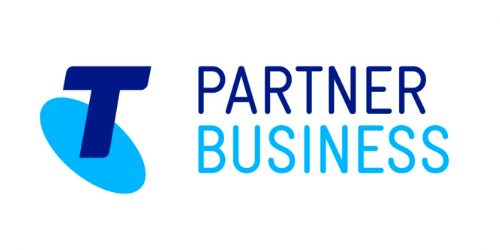JUNE 2025
What I Shared with My Daughter About Boundaries
From frustration to a framework that establishes clear sustainable boundaries

Illustration by @jordy_arts
A couple of weeks ago, I had a health appointment in Wangaratta—30 minutes from home. I arrived 8 minutes late and was politely told I’d need to reschedule.
“But I got stuck behind a caravan,” I explained.
“Yes, I understand,” the receptionist replied kindly, “but your appointment is for twenty minutes, and it’s now half over. You’ll need to reschedule.”
“But you don’t understand—I’m from Beechworth,” I said, starting to panic.
“I have an availability at 10 o’clock if you’d like to come back,” she offered.
“That’s nearly two hours away,” I responded.
At this point, I’m sure there was steam coming out of my ears—but what choice did I have? She was right. I was late, and I had only myself to blame. So, I rescheduled and returned—on time—two hours later.
That moment, frustrating as it was, reminded me just how powerful clear boundaries can be—not just in healthcare, but in any business.
So, why was I so angry? Why did it bother me so much?
I think it was because I’d grown used to the idea that most health professionals run late—and that a little tardiness on my part would be tolerated. But this organisation was setting a new standard. They had a clear boundary in place: one that protected their staff from long hours and their clients from long wait times. And honestly? I respect that now. It’s something I consider when making future appointments.
Boundaries like these foster a healthier work-life balance. They help manage time, energy, and stress levels. Clear expectations create a more productive and satisfying environment—for both the service provider and the client. And clearly, this healthcare team had figured that out.
Over the past few weeks, I’ve been watching my daughter navigate similar challenges as she builds her tattoo “Art” business. It’s brought up a lot of conversations about boundaries, similar to many I have with clients I mentor through the ASBAS program and I’ve found myself sharing three key pieces of advice from my own experience as a business owner.
1. Choose How and When You Communicate
Already, clients are contacting her at all hours—often through her personal social media profiles—especially if she doesn’t respond immediately via her business Instagram account.
When you’re just starting out, it’s tempting to be available 24/7 to win clients. But that pace isn’t sustainable. Choosing a communication method that works for both you and your clients is essential to earning respect for your time. Just as important is deciding when you respond—because that sets the tone for future interactions.
If you’re not proactive, clients will begin to dictate how and when they communicate with you. That can quickly lead to frustration and feelings of being disrespected. Without clear boundaries, texts, DMs, and phone calls can pile up across multiple platforms, leaving you overwhelmed and scattered.
“So, what do I do when a client messages my personal Instagram account?” my daughter asked.
Great question. If it’s outside your work hours, don’t respond. If it’s during work hours, respond—but gently redirect them to your preferred channel. In your case, that’s your “Art” business account on Instagram.
Since your online presence is still growing, it’s a good idea to clearly list your work hours on your business profile. This helps manage expectations and gives clients a clear sense of when they can expect a reply.
2. Know Your Strengths and Limitations
Learning to say no when you’re just starting out is hard. But taking on a project you’re not ready for can be overwhelming—and it can shake your confidence. We can’t be all things to all people, and we certainly can’t master every skill overnight.
To set healthy boundaries around the work you take on, you first need to understand your own strengths and limitations. Yes, it’s important to challenge yourself and grow—but that’s very different from being pressured into something that makes you uncomfortable.
“So how do I say no to this large chest tattoo that I’m not confident doing yet?” my daughter asked.
Here’s what I told her: Talk to your mentor. Explain why you feel you’re not ready. Together, you can create a plan to build those skills over time and develop your craft with confidence.
Then, speak honestly with the client. Let them know how much you appreciate them choosing you as their artist, and that you’d love to create this piece for them in the future—once you’ve gained more experience. If they’re eager to move ahead now, recommend another artist you trust. Ideally, one who might let you observe and learn from the process.
3. Invest in Relationships and Time Out
Building strong relationships with your clients can be incredibly rewarding. It fosters mutual respect, creates meaningful connections, and builds trust that you’ll be there to support them long-term.
For years, my daughter has watched me take time away from the business—to support family, go on holidays, or simply recharge. I’ve said it many times: taking breaks isn’t just a luxury, it’s essential. Time away from work helps you reconnect with what matters, deepen personal relationships, and give your creative brain the space it needs to breathe and explore new ideas.
“So how do I take time off when I don’t have a regular weekly income and my clients expect me to be available?” she asked.
Another great question. Here’s what I suggested:
- 1. Know your expenses. Understanding your financial needs helps you set income goals and determine what you need to earn to stay afloat—and thrive.
- 2. Know where your clients are coming from. Focus your marketing energy on the channels that are actually bringing in business. This helps you grow your client base more efficiently.
- 3. Know your ideal client. When you’re clear on who you want to work with, you can tailor your messaging and services to attract more of them.
- 4. Plan your breaks. Schedule major time off in advance and set a budget for each break. It might not feel spontaneous, but it gives your studio manager time to plan and helps set clear expectations for your clients.
What boundary advice would you give to someone starting out in their own creative business? And how clearly do you communicate your expectations to your clients?
If you’re navigating your own boundary challenges—whether in business or creative work—I’d love to support you. I offer one-on-one mentoring through the Melbourne Innovation Centre’s ASBAS Mentoring Program.
Not eligible for ASBAS? No problem—I also offer private mentoring packages.
Download the flyer to learn more.
Let’s build better boundaries together—ones that support your growth, protect your energy, and help your business thrive.
A couple of articles I have written in the past about needing to recharge and getting curious to find joy...
Get Your Free Resources
Six articles a year focused on improving your small business. Learn about business development, resilience, brand identity and more...
Recent Articles
August 2025
Your Brand Isn’t Static—Why Evolution Matters More Than Ever
June 2025
What I Shared with My Daughter About Boundaries
April 2025
Navigating Business Transition: How we can help you buy, sell or shutdown with confidence
Febuary 2025
What does my word of the year have to do with business growth and development?
October 2024
Why are we investing time and money in reviewing our brand identity?
August 2024
Brand Consistency vs. Creative Freedom: Striking the Right Balance
June 2024
Website Needs Analysis: Unlocking Success for Your Business
April 2024
Finding purpose, joy, and identity after 26 years…
April 2023
Dialup, Floppy Disks and Design Before Computers
November 2022
Universal Google Analytics will be retired July 1, 2023. What does that mean for you?
September 2022
Improve email delivery and avoid ending up in the junk folder!
July 2022
Need to recharge, maybe it is time to get curious…
May 2022
How to improve your website ranking without paid SEO?
March 2022
Could a Brand Audit Benefit Your Business?
October 2021
3 ways developing a Value Proposition enhances your business






